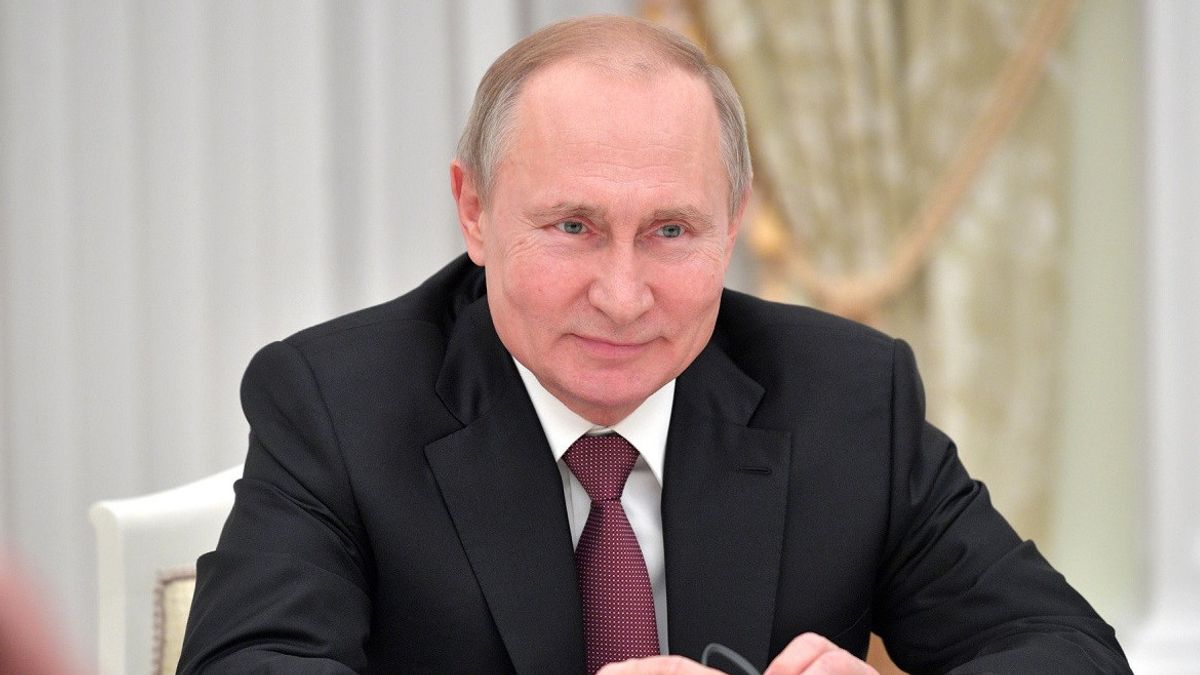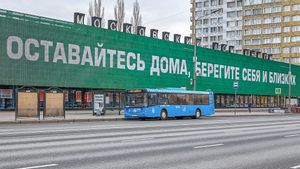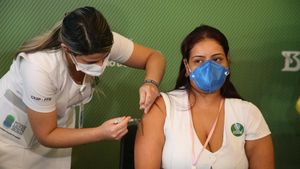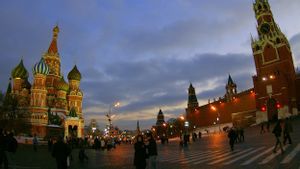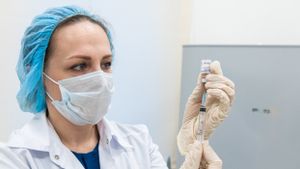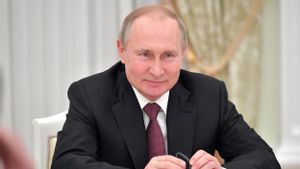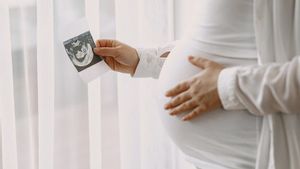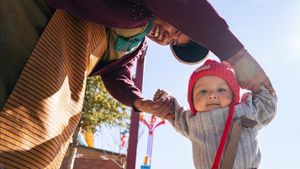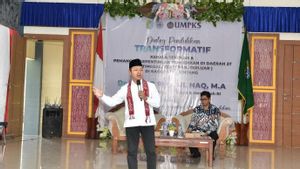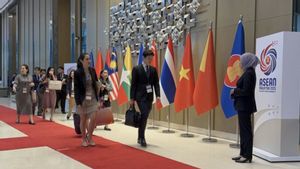JAKARTA - The Russian president revealed that he had received an injection of the COVID-19 Sputnik V vaccine, while the majority of his citizens did not believe in the vaccine.
The riddle surrounding Russian President Vladimir Putin's vaccinations has been answered. In the annual question and answer session on Wednesday, June 30 local time, he admitted that he had received the Sputnik V vaccine.
"For me, when I did this and it happened in February, there were actually two vaccines available, EpiVacCorona from the Novosibirsk-based Vector Center and Sputnik V, as you know. Both are good", said President Vladimir Putin, as reported by TASS Wednesday, June 30.
"I proceeded from the fact that I needed to be protected as long as possible, so I made the decision to get the Sputnik V vaccine," President Putin continued.
The Russian leader further said that his daughter had also been injected with the Sputnik V COVID-19 vaccine and stressed that the vaccine was necessary and did not cause serious side effects.
"There are people with different body conditions, with chronic diseases, and the elderly, which are called risk groups. Vaccination is not dangerous and we don't have a single complication in our country", he explained.

President Putin admitted to refraining for a long time from mentioning the COVID-19 vaccine that was injected into him, so as not to create a competitive advantage between inoculations.
Russia's Sputnik V vaccine has been approved for use in 67 countries with a total of more than 3.5 billion people. More than 30 countries have launched mass vaccination campaigns using Sputnik V. The Russian vaccine offers an efficiency rate of 91.6%, which is confirmed by data published in the medical journal Lancet.
Interestingly, Russian citizens are said to be hesitant about the domestically made Sputnik V vaccine. A survey published last month by the independent pollster Levada-Center showed 62 percent of Russians would not be vaccinated with Sputnik V.
"There is a crisis of public confidence in political and medical institutions. There is no clear and transparent information about the vaccination process, so we are looking for ways to get around the system", Alexandra Arkhipova, a social anthropologist and researcher at Moscow's RANEPA university told CNN.
SEE ALSO:
For information, Russia's COVID-19 vaccination program, which is intended for people aged 18 years and over, uses four types of vaccines, namely Sputnik V, Epivaccorona, CoviVac, and Sputnik Light.
The English, Chinese, Japanese, Arabic, and French versions are automatically generated by the AI. So there may still be inaccuracies in translating, please always see Indonesian as our main language. (system supported by DigitalSiber.id)
